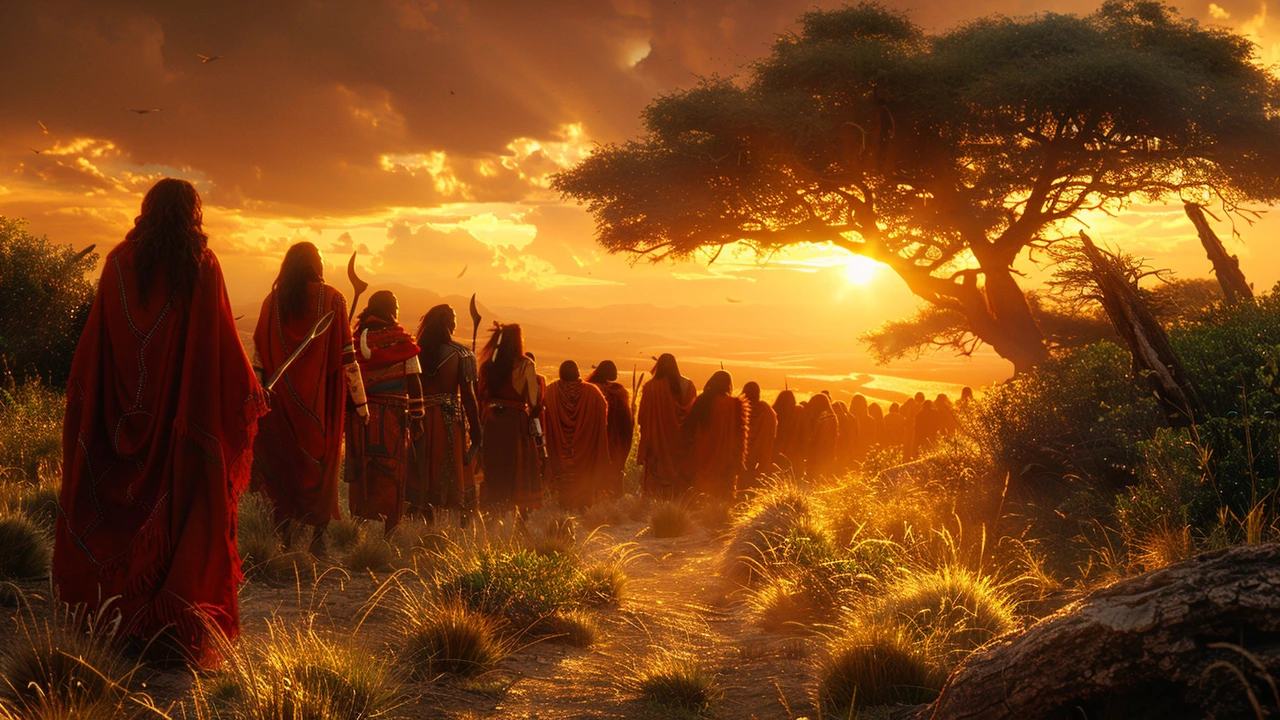Rungu: The Symbol of Power in African Tribal Culture

Understanding the Rungu: An Introduction
In the intricate mosaic of African tribal culture, symbols carry profound meanings, connecting the present with the ancestral past and signifying various aspects of life. One such emblem that stands prominently in several African tribes is the Rungu. At first glance, it appears to be a simple wooden club, but its significance within tribal communities unfolds layers of tradition, authority, and cultural identity. Originating from East African regions, the Rungu has been an integral part of communities, symbolizing strength, leadership, and justice.
The Historical Roots and Symbolic Significance of the Rungu
The Rungu's heritage traces back centuries, deeply embedded in the history and traditions of East African tribes such as the Maasai, Samburu, and many more. It's not just a weapon but a multifunctional tool and a symbol of power. Traditionally crafted from hard woods, the Rungu's design, with its distinctive round-headed club, is tailored for both combat and ceremonial purposes. Elders and leaders often carry it as a symbol of authority, demonstrating their role in making decisions and resolving disputes.
Ceremonial and Daily Uses of the Rungu
The dynamic role of the Rungu extends beyond its immediate physical utility. In ceremonial settings, it plays a pivotal part in rites of passage, community gatherings, and rituals that mark significant events in tribal life. By wielding the Rungu, leaders not only enforce order but also bridge the spiritual with the worldly, serving as mediators between the community and the divine. In daily life, it serves as a practical tool for herders and warriors, aiding in protection and subsistence activities, thus reflecting the intricate bond between the people and their environment.
The Rungu in Conflict Resolution and Justice
In the context of tribal justice and conflict resolution, the Rungu emerges as a powerful emblem of equilibrium and fairness. When tribal elders gather to adjudicate disputes, the presence of the Rungu symbolizes the weight of their decisions and the traditional wisdom guiding their deliberations. It underlines the importance of upholding justice and maintaining social harmony within the community. Through its deployment in such settings, the Rungu reinforces the societal norms and values that have been passed down generations.
Artisanal Craftsmanship and Cultural Preservation
The making of a Rungu is a craft steeped in tradition, requiring skill and a deep understanding of the cultural and functional nuances that define its use. Artisans who create them are custodians of an ancient craft, blending utility with symbolism. The choice of wood, the shaping of the head and handle, and sometimes the adornment with carvings or beads, all contribute to the Rungu's uniqueness as a cultural artifact. In this craftsmanship lies the preservation of cultural identity and heritage, making each Rungu a bridge between past and present.
Rungu in Modern Times: Cultural Relevance and Continuity
While the world around them evolves, tribal communities in Africa continue to hold the Rungu in high esteem, preserving its place in their culture and daily lives. Its relevance transcends the physical, embodying principles of leadership, community, and continuity. The Rungu remains a poignant reminder of the enduring strength of tribal traditions and the unbroken link to ancestral heritage. For many, it symbolizes resistance against the erasure of identity and the tenacity of cultural survival in the modern age.
Conclusion: The Rungu as a Living Legacy
Through the lens of the Rungu, we glimpse the depth of African tribal culture and the intricate ways in which artifacts become imbued with meaning. It's more than a weapon or a tool; it's a potent symbol of authority, community, and cultural continuity. As societies evolve, the role of such symbols in bridging the past with the present and future becomes increasingly significant. The Rungu, with its rich history and multifaceted role, stands not only as an emblem of power but as a testament to the resilience and vibrancy of African tribal traditions.




